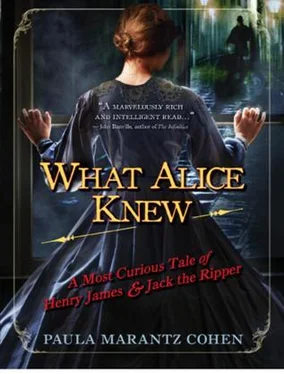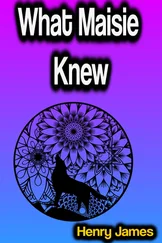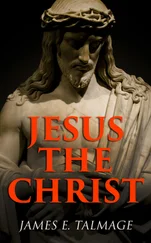“ Attention mes amis ,” said Oscar, tapping his spoon to his glass. “ Bienvenue, à tout le monde. I want to offer a special welcome to our special guest, Mr. Samuel Clemens, or as we know him on the page, Mark Twain. He has just arrived in England and is already the toast of Europe.”
Henry winced. He had been in Europe for more than a decade and was still not the toast of it.
“I’m mighty glad to be here,” said Clemens, in what Henry believed was an affectedly flat, nasal accent, but by which the company appeared to be immediately charmed.
“What inspires your writing, Mr. Clemens?” asked one of the pedigreed women.
“Alcohol, my dear…and debt,” answered Clemens, to appreciative laughter.
“Do you think that your writing suffers from your country’s dearth of history?” asked an eager Pre-Raphaelite.
“Not at all,” responded Clemens. “I wish we could continue to avoid history, but I suspect we will soon have some of it.”
There was more laughter.
“I was struck by the use of dialect in your novel about the young boy and the runaway slave,” said a bluestocking woman who had lately taken up linguistics. “Did you study the structure of American Negro speech?”
“No, ma’am,” said Clemens. “I did not study Negro speech; I listened to it.”
A group of young men, normally intimidated by the bluestocking’s erudition, found this comment hilarious.
“Do you Americans have any women poets of note?” queried the great Browning.
“We have our poets in petticoats,” acknowledged Clemens, “but we try to avoid reading them.”
Browning looked taken aback, but Clemens proceeded to soften the remark in his genial drawl. “You see, we are a vast, untamed country and so tend to favor a more rugged style for the present. I am sure we will have our women poets in time, but for now we are carving our literature out of mud and rock.”
Henry felt his mood growing increasingly sour. It was grating to hear Clemens turn his country’s demerits into badges of honor. One could laud what was low and vulgar as much as one pleased, but that hardly prevented it from being low and vulgar.
Fortunately, the soup, lobster bisque, arrived as a momentary diversion. Henry was seated across from a group of young men of very slight appearance. “Are you partial to the Uranian school?” one asked him softly.
“Uranian?” asked Henry, confused. Sargent whispered that the Uranians worshipped boys, and Henry shook his head vigorously and turned away.
The meal progressed slowly. There was talk at the other end of the table about the relative merits of New York and London, Grover Cleveland and William Gladstone, Lillian Russell and Lillie Langtry. Clemens explained the American electoral system and the issues in the upcoming presidential election. He spoke about his business ventures, the advisability of reparations to former slaves, and the hoped-for production of a play he had written with his friend, William Dean Howells. These topics showcased his ingenuity, beneficence, and collaborative energy, thereby causing Henry’s mood to deteriorate further. That Howells, his own good friend, would collaborate with this creature—and not approach him first—was especially irritating.
During the discussion, Henry remained quiet and, despite Alice’s admonition, repeatedly motioned for his wineglass to be refilled. At one point, he turned to Sargent. “Did you know Alice thinks Jack the Ripper is a painter?” he asked abruptly. He had wanted to build gradually to this revelation, but the proceedings of the evening had caused him to lose patience.
Sargent opened his eyes wide with surprise. He and Emily had wondered why Alice had wanted samples of the different reds, but had been too discreet to ask.
“She has amassed considerable evidence to support her theory,” said Henry smugly.
Before he could say more, Clemens was at it again, regaling the company with his adventures as a steamboat captain on the Mississippi River. Sargent, diverted by the Clemens account, murmured that he looked forward to learning more about Alice’s intriguing theory and shifted his attention to the other end of the table.
Henry was disgusted. Here he was with news that a diabolical murderer might be loose in the Royal Academy, and Sargent was more interested in hearing stories about paddling down a muddy river. He made no effort to speak again.
The courses came and went. There were chicken cutlets that he thought were overcooked, a mutton chop he sampled and left on his plate, a poor selection of jellies, and a mediocre poached turbot. He drank copiously and filled himself up with potatoes. He was becoming very sullen and very intoxicated.
As the meal drew to a close, Wilde called for his honored guest to give a toast. They all rose.
“To the mother country,” declared Clemens, “from which my compatriots and I are still trying to free ourselves.”
Henry had lifted his glass but put it down. There was only so much of this sort of thing he could take.
“You will not drink to that, Henry?” asked Wilde, pleased at the prospect of a quarrel.
“No,” asserted Henry, “I do not share Mr. Clemens’s desire to sever my ties to England.”
Clemens lifted a bushy eyebrow. “It is my understanding that we fought a war of independence for that purpose,” he said.
“Political independence is one thing; cultural independence, another,” intoned Henry. “We have much to learn from our European brothers, and we would be remiss to deny it.”
“We will have a native literature only when we do,” said Clemens.
“Then we will have a bad literature,” asserted Henry. “I count on my European ties to lend weight to my writing.”
“And your writing sinks under it,” murmured Clemens.
“Your meaning, sir?” Henry took this up sharply.
“My meaning is that your prose could use more native air.”
Henry sputtered. “And yours, sir, could use more art!”
Clemens paused, as the company waited for his rejoinder. “There is such a thing as too much art,” he finally said. “I fear that Mr. James’s novels suffer from that defect. When I put them down, I find myself incapable of picking them up again.”
There was considerable laughter, and it fleetingly occurred to Henry that he and Clemens were making spectacles of themselves in front of the Europeans, which was just what vulgar Americans were expected to do. Still, he could not stop himself and countered stridently, “Sir, no person of breeding would find your writing more than a burlesque diversion.”
“Breeding?” Clemens scoffed, looking around him with mock wonder. “Who are these persons of breeding? Are they men…or horses?”
The laughter had grown very loud. Clemens’s wit—if one could call it that—was being well received.
“I…resent that!” Henry declared lamely. He had gotten very red.
“Shall we have a duel?” demanded Wilde. “Shall I get out the sabers or the pistols?”
“Dueling is an old-world custom.” Clemens laughed. “In my country we would have a boxing match. Does Mr. James box?”
Henry felt vaguely panic-stricken. Clemens was baiting him, impugning his manliness, using vulgarity to place him at a disadvantage. What should he do? He felt ill-used and humiliated, and the prospect of being punched did not seem entirely outside the sphere of possibility. He had always had a horror of physical violence.
He looked with dismay at the company; all seemed to be paying close attention and smirking. Even the French had been roused from their Gallic indifference, eager to see what would happen next.
“I don’t think our American guests should fight,” a clear voice intruded in the background. “They are both indispensable to our cultural life by showing us the world from different angles, the high and the low. Our literature would be poorer for the lack of either of them.”
Читать дальше












